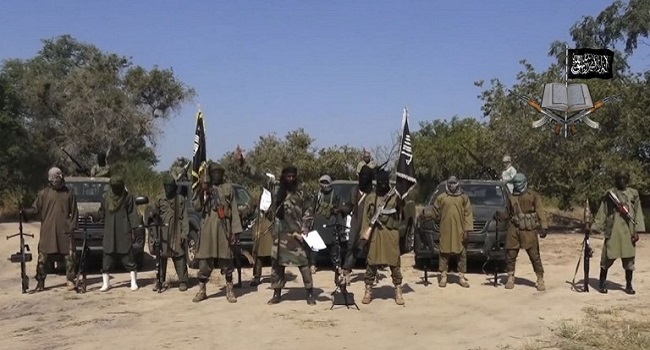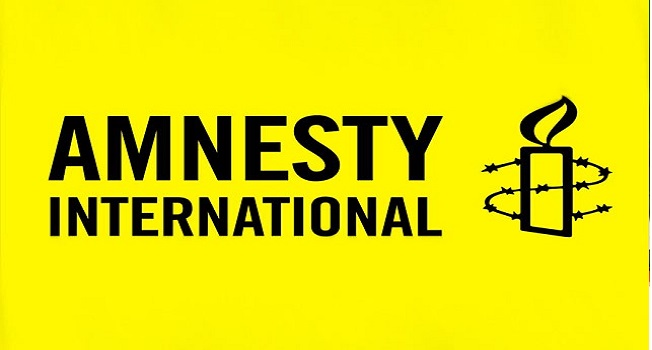Amnesty International has alleged that hundreds of people in Cameroon accused of supporting Boko Haram are being brutally tortured by security forces.
The human rights group made the claim in a report it published on Thursday, tagged: ‘Cameroon’s secret torture chambers: human rights violations and war crimes in the fight against Boko Haram’.
According to the group, the report, using dozens of testimonies corroborated with satellite imagery, photographic and video evidence, documents 101 cases of incommunicado detention and torture between 2013 and 2017, at over 20 different sites.
“We have repeatedly and unequivocally condemned the atrocities and war crimes committed by Boko Haram in Cameroon. But, nothing could justify the callous and widespread practice of torture committed by the security forces against ordinary Cameroonians, who are often arrested without any evidence and forced to endure unimaginable pain,” Amnesty International’s Regional Director for West and Central Africa, Alioune Tine, said in a statement.
“These horrific violations amount to war crimes. Given the weight of the evidence we have uncovered, the authorities must initiate independent investigations into these practices of incommunicado detention and torture, including potential individual and command responsibility”.
The human rights group said it had asked the Cameroonian authorities to share the report’s findings in April 2017 but no response was provided, adding that all subsequent requests for meetings were refused.
It, however, estimated that Boko Haram has killed over 1,500 civilians in Cameroon since 2014, and abducted many others.
Torture In Unofficial Detention Sites
In a statement issued by the media manager of Amnesty International Nigeria, Isa Sanusi, Alioune Tine said: “Victims described at least 24 torture methods they were subjected to. In one common stress position, described by detainees as ‘the goat’, their limbs were tied together behind their back before they were beaten. In another technique, described by detainees as ‘the swing’, victims were suspended in the air with their limbs tied behind their back and beaten”.
“The overwhelming majority of victims were tortured in two unofficial detention sites; the headquarters of the Rapid Intervention Batallion (BIR) in Salak, near the northern city of Maroua, and a facility in the capital, Yaoundé run by the General Directorate of External Research (DGRE), Cameroon’s intelligence services, situated close to the country’s Parliament.”
In Salak, Amnesty International said there are two main cells measuring approximately nine by five metres with each containing up to 70 people.It alleged that detainees were usually tortured in an interrogation room they called “the DGRE Room”, which is located near the office of a senior officer who was described a victim as being able to “decide the life and death of each detainee”.
It alleged that detainees were usually tortured in an interrogation room they called “the DGRE Room”, which is located near the office of a senior officer who was described by a victim as being able to “decide the life and death of each detainee”.
According to the statement, Samou (not his real name), who was arrested in March 2016, told Amnesty International about his interrogation in Salak a few days after his arrest.
“They asked me to tell them if I knew members of Boko Haram. That’s when the guard tied my hands and feet behind my back and started to beat me with an electric cable while throwing water on me at the same time. They beat me half to death.”
The human rights group added that another detainee, Mohamed (not his real name), who also spent six months in incommunicado detention and was interrogated and tortured several times in Salak, said: “The soldiers asked us to confess. They told us that if we did not confess, they would bring us to Yaounde to kill us. We replied that we preferred to be killed rather than to confess something that we didn’t know about. They beat us like this for four days”.
The report also highlighted the presence of U.S. and French military personnel at the BIR base in Salak and called on the governments to investigate the extent to which their personnel might have been aware that illegal detention and torture was taking place on the site.
“Given the frequent and possibly prolonged presence of their military personnel, the U.S. government and other international partners should investigate the degree to which their personnel were aware of illegal detention and torture at the Salak base, and whether they took any measures to report it to their hierarchy and the Cameroonian authorities,” said Alioune Tine.





